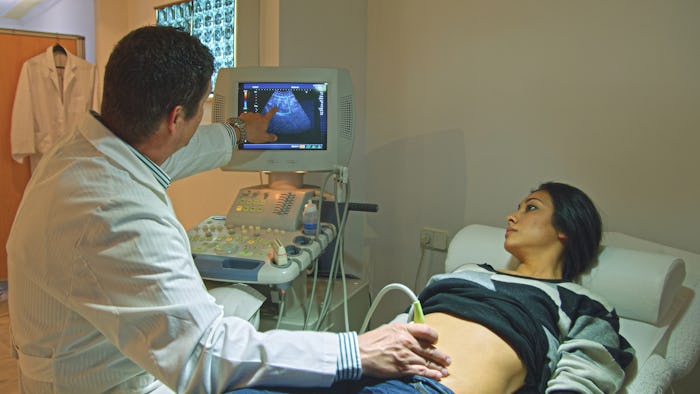Life

The Difference Between A Retroverted & Tilted Uterus
It's easy to imagine your anatomy as a standard-issue sort of thing. And although this is true to an extent, there are minor anatomical differences that may come up at your next gynecological appointment. With this in mind, you may wonder what is the difference between a retroverted uterus and a tilt ed uterus?
To begin, think about the anatomy of a typical uterus. In most cases, Baby Center noted that the uterus leans forward a bit, sort of hugging your bladder. This positioning is known as anteverted, which means "to lean forward." On the flip side of things, sometimes the uterus leans backward. According to the Better Health Channel, a retroverted uterus (AKA tilted uterus), is tipped backwards so that it faces away from your bladder.
How do you know which way your uterus leans? It would probably take a doctor's pelvic exam to know with certainty. For what it's worth, a tilted uterus is generally no cause for alarm. According to the U.S. National Library of Medicine, approximately 20 percent of women have a retroverted uterus, and it is generally unnoticeable. Chances are, your uterus will just keep on doing its thing, no matter which way it happens to lean in your body. Either way, it's usually no cause for concern.
That said, how would you know if your retroverted uterus is causing some problems? Some otherwise unexplained pains may tip you off. According to the American Pregnancy Association (APA), the main symptoms of a tilted uterus include pain during sex or menstruation. If the pain is rather minor, then you could consider trying the best sex positions if you have a tilted uterus, as noted in Romper.
If you're concerned that a retroverted uterus is causing more serious symptoms, then you still have a lot of options for relief. For instance, your doctor may recommend a surgical procedure called a uterine suspension, as noted by the APA. It can reposition your uterus into a forward-facing position, hopefully easing the sexual or menstrual pain sometimes associated with a retroverted uterus. If this sounds like an interesting option, then reach out to your physician to learn more. Hopefully your uterus will not give you any trouble, no matter which way it leans.